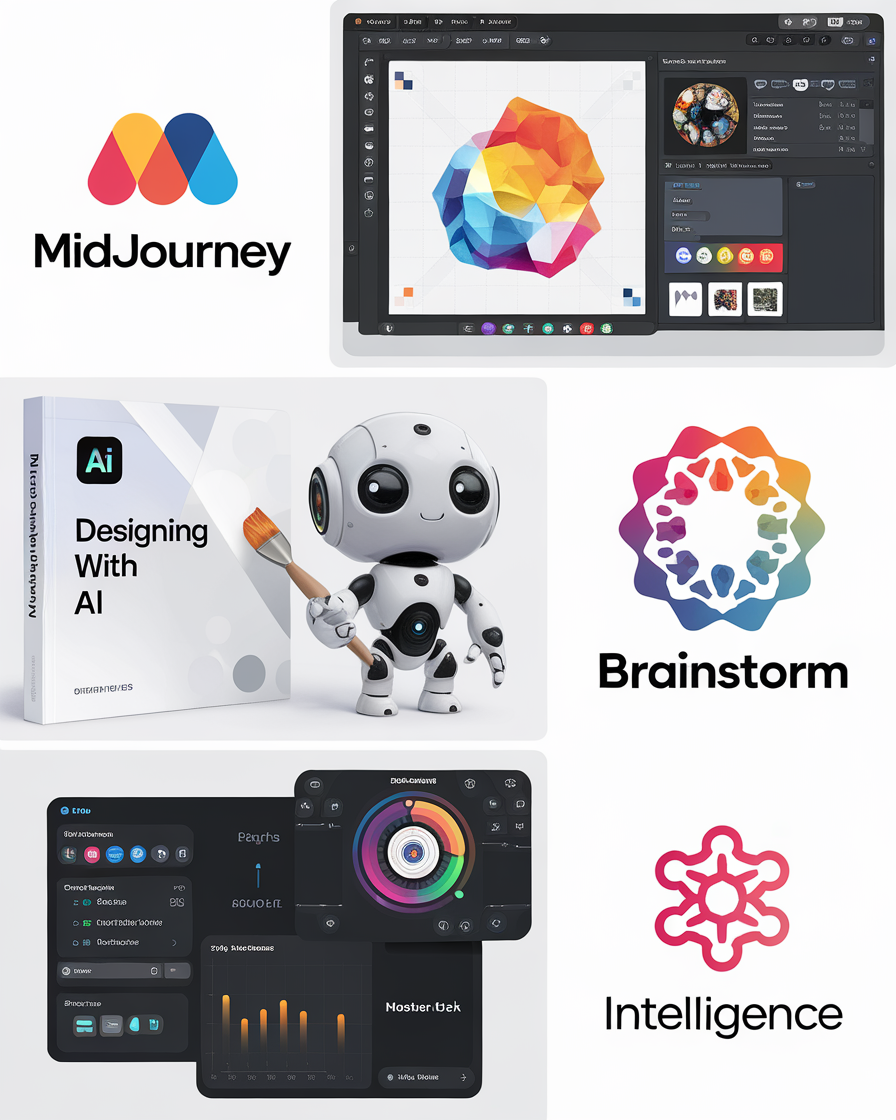Writing ebooks with AI is quickly becoming one of the most exciting and scalable ways to generate passive income online. At RiseViaAI, our journey began with a simple vision: to empower people everywhere to use artificial intelligence not just as a tool but as a gateway to financial freedom and personal growth. Our About page tells the story of how we started as a small, passionate team focused on blending AI with creativity. Today, we’ve helped countless aspiring authors and entrepreneurs unlock their potential by showing them how AI can streamline the ebook creation process.
This guide is designed to be your ultimate passive income blueprint. Whether you’re a first-time writer or a seasoned publisher, you’ll discover step-by-step strategies to leverage AI for writing, publishing, and profiting from ebooks. Along the way, we’ll answer key questions like “Is it legal to sell eBooks written by AI?” and “Can I earn passive income with AI?”
By the end of this comprehensive article, you’ll understand why now is the perfect time to launch your ebook business with AI—and how you can get started today with minimal cost and effort.
Discover great ideas like this on our Blog
Table Of Contents
- Understanding the Power of AI in eBook Creation
- Laying the Foundation for a Successful AI-Written eBook
- Step-by-Step Guide to Writing eBooks with AI
- Publishing Your AI-Written eBook for Passive Income
- Marketing Strategies to Maximize Passive Income
- Scaling Your eBook Empire with AI
- Legal and Ethical Considerations When Using AI
- Success Stories of Passive Income with AI eBooks
- Future Trends in AI and Passive Income
- Conclusion
- FAQs
Understanding the Power of AI in eBook Creation
How Writing Ebooks with AI is Reshaping the Publishing Industry
Writing Ebooks with AI is no longer a futuristic concept—it’s a game changer for the publishing industry in 2025. Traditional publishing once demanded years of experience, countless edits, and access to elite literary agents. But today, Writing Ebooks with AI has leveled the playing field. Platforms like Jasper, ChatGPT, and Sudowrite empower aspiring authors to brainstorm, draft, and refine entire manuscripts at lightning speed. Whether you’re a seasoned writer or a complete beginner, Writing Ebooks with AI gives you the tools to create professional-quality content that resonates with your target audience.
By embracing Writing Ebooks with AI, individuals who once struggled with writer’s block or time constraints can now publish multiple titles across a range of niches. AI-driven tools analyze trends, suggest plotlines, and even generate compelling dialogue, allowing you to focus on your vision while the technology handles the heavy lifting. The result? A faster, smarter, and more accessible approach to publishing that’s already revolutionizing the digital book space.
Why Writing Ebooks with AI is the Key to Building Ebook Passive Income
When it comes to passive income, Writing Ebooks with AI stands out as one of the most scalable and rewarding methods available today. The idea of earning royalties on autopilot becomes a reality when you leverage AI technology. Writing Ebooks with AI allows you to publish once and earn forever—your digital book becomes an asset that keeps generating revenue while you’re sleeping, traveling, or working on your next masterpiece.
The power of Writing Ebooks with AI lies in its speed and versatility. You can research trending topics, outline chapters, and write engaging content in a fraction of the time it would take manually. Imagine publishing ten ebooks in a year instead of one. Each book increases your chances of landing in profitable niches, building multiple streams of income that grow exponentially over time.
Moreover, Writing Ebooks with AI helps you optimize every part of the process—from SEO-friendly titles to keyword-rich descriptions. This gives your books a competitive edge on platforms like Amazon Kindle, Apple Books, and Kobo. Instead of hiring expensive editors or marketers, Writing Ebooks with AI provides grammar checks, tone suggestions, and even cover design assistance through integrated tools.
The Future of Publishing: Writing Ebooks with AI as Your Business Model
Writing Ebooks with AI is more than a productivity hack; it’s a complete business model for 2025 and beyond. Entrepreneurs, stay-at-home parents, students, and retirees are all using AI to create high-quality content without needing a traditional publishing deal. With minimal upfront costs and virtually no inventory requirements, Writing Ebooks with AI offers one of the lowest barriers to entry for passive income seekers.
As more authors embrace this technology, Writing Ebooks with AI continues to evolve. Advanced AI platforms now assist with audiobook creation, translations for global markets, and even personalized reader experiences. This means your ebook isn’t just a static product—it’s part of a dynamic, ever-expanding ecosystem of digital publishing.
Learn more about AI-Driven Insights in our Services
Laying the Foundation for a Successful AI-Written eBook

Selecting Profitable Niches for Maximum ROI
When it comes to writing ebooks with AI, selecting the right niche is the first step toward creating a solid passive income blueprint online. A profitable niche is one that attracts a consistent audience and solves specific problems. Popular evergreen niches include personal finance, self-improvement, health and wellness, parenting, and technology. These topics continually draw readers searching for actionable advice or solutions.
AI-powered tools like Jasper and Google Trends can help you identify untapped markets with high demand and low competition. For example, if you notice a growing trend in sustainable living, creating an ebook on “Sustainable Habits for Beginners” could position you as an early authority in that space. Remember, success in ebook passive income isn’t just about what sells today—it’s about what will continue to sell tomorrow.
Focus on niches where readers are willing to spend for premium content. When your ebook solves a pressing issue or fulfills a deep desire, it naturally attracts positive reviews and word-of-mouth promotion, multiplying your passive income potential.
Creating an Effective Outline with AI Assistance
Once your niche is clear, the next step is outlining your ebook. A well-structured outline keeps your content organized, ensures a logical flow, and helps AI tools generate more relevant drafts. With AI assistance, you can quickly draft outlines tailored to your audience.
For instance, tools like Copy.ai and Rytr can suggest chapter breakdowns based on your input. Start by feeding them your ebook’s working title and key concepts. The AI then returns a suggested framework, including possible chapters, subheadings, and even bullet points for key arguments.
An effective outline might look like this:
- Introduction – Why this topic matters
- Chapter 1 – Understanding the problem
- Chapter 2 – Common mistakes readers make
- Chapter 3 – Actionable solutions step-by-step
- Conclusion – Inspiring call to action
This approach not only saves time but also ensures your final manuscript aligns with readers’ expectations. Plus, an organized outline makes the AI writing process more efficient, requiring fewer revisions later.
Why Outlining Matters for Long-Term Passive Income
Think of your outline as the foundation of your passive income house. A weak structure leads to poor-quality content, which results in low sales and negative reviews. But a solid, AI-enhanced outline sets the stage for engaging content that sells repeatedly.
With a well-planned structure, each chapter acts as a building block toward a reader’s transformation. That’s what drives ebook passive income—satisfied readers who recommend your book to others.
Step-by-Step Guide to Writing eBooks with AI

Drafting Your Manuscript with AI Tools
When writing ebooks with AI, the drafting stage is where your passive income blueprint starts to take shape. Thanks to advanced AI tools, creating your manuscript doesn’t require months of writing. Instead, platforms like ChatGPT, Jasper, and Sudowrite can produce well-structured content in hours.
To begin, input your outline and provide the AI with clear instructions about tone, audience, and purpose. For instance, you might say:
“Write in an engaging, conversational tone aimed at beginners in personal finance. Use simple language and provide actionable tips.”
By feeding these specific prompts, the AI will generate drafts tailored to your niche and target readers. Remember to work chapter by chapter rather than all at once for better control over flow and coherence.
Learn more about AI tools for writing eBooks and how they’re transforming digital publishing globally.
Editing and Proofreading for Quality Assurance
Why Editing Is Crucial When Writing Ebooks with AI
Even with the most advanced technology, Writing Ebooks with AI isn’t a set-it-and-forget-it process. AI tools like ChatGPT, Jasper, and Sudowrite can produce impressive drafts, but human oversight remains essential. After completing your first draft with Writing Ebooks with AI, take time to carefully edit and proofread for grammar, style, and factual accuracy. Tools such as Grammarly or ProWritingAid perfectly complement Writing Ebooks with AI by catching minor errors and offering suggestions for improved flow and readability.
If your budget allows, hiring a professional editor is an excellent investment when Writing Ebooks with AI. A polished manuscript elevates your book’s quality and earns better reviews, which is crucial for establishing a reliable stream of ebook passive income. Remember, while Writing Ebooks with AI accelerates the writing process, your unique voice and insights are what make your content stand out.
One highly effective strategy is to use Writing Ebooks with AI for the initial editing phase. Let AI handle repetitive grammar checks and structural suggestions to save hours of work. Then, follow up with a thorough manual edit to add your personal touch. This hybrid approach ensures that Writing Ebooks with AI creates content that feels authentic rather than robotic.
Adding Visual Elements and Bonuses When Writing Ebooks with AI
Reader engagement is the cornerstone of success when Writing Ebooks with AI. Beyond text, enhancing your ebook with visual elements can dramatically improve comprehension and retention. Incorporate charts, illustrations, or infographics that support your content. With tools like Canva or MidJourney, you can design professional-quality visuals—even without advanced design skills. This makes Writing Ebooks with AI a comprehensive process that covers both text and visuals seamlessly.
Another game-changing tactic for Writing Ebooks with AI is including bonus materials. Add checklists, templates, or printable worksheets at the end of your ebook to increase its perceived value. These extras transform your ebook from a simple read into a practical tool, encouraging positive reviews and repeat readers. Writing Ebooks with AI gives you the flexibility to experiment with such features, allowing your product to stand out in a saturated market.
The goal of Writing Ebooks with AI is not just to create books quickly but to craft valuable assets that readers truly appreciate. When you combine AI-generated drafts with thoughtful editing and rich bonus content, Writing Ebooks with AI becomes a powerful method for building long-term passive income streams.
Explore a free ChatGPT passive income blueprint for inspiration on how others are successfully implementing these techniques.
Building Momentum for Future Projects
Once your first AI-written ebook is complete, use it as a template for future titles. The experience gained from writing and editing this initial book will make subsequent projects faster and easier. This compounding effect is the secret to scaling your ebook passive income blueprint online.
Publishing Your AI-Written eBook for Passive Income

Top Self-Publishing Platforms to Consider
Publishing is where your ebook transitions from a draft into a money-making asset. Thanks to modern platforms, you no longer need a traditional publisher to get your book into readers’ hands. Amazon Kindle Direct Publishing (KDP) is the most popular choice, offering global reach and royalty rates up to 70%.
Other platforms like Smashwords and Draft2Digital also provide wide distribution. They help you list your ebook on Apple Books, Barnes & Noble, Kobo, and more. These platforms handle the technicalities of distribution, so you can focus on creating more titles and scaling your passive income streams.
When uploading, pay close attention to your book’s metadata. A compelling title, subtitle, and description optimized for search engines can significantly impact visibility and sales. Use your focus keyword naturally in these elements to improve discoverability.
Designing Covers and Formatting for Professional Appeal
Your ebook’s cover is the first thing readers see—and it can make or break your sales. A high-quality, professional design builds trust and conveys value. If you’re on a budget, use design tools like Canva to create stunning covers that look professionally made. For those willing to invest more, hiring a graphic designer ensures your book stands out in crowded marketplaces.
Formatting is equally important. Clean, consistent formatting improves the reading experience and reduces the chances of negative reviews. Tools like Vellum or Atticus simplify formatting for various devices, ensuring your ebook looks great on Kindles, tablets, and smartphones.
Setting the Right Price for Your Passive Income Strategy
Pricing affects both your sales volume and your perceived value. For new authors, starting with a lower price point, such as $2.99, can help attract readers and generate reviews. As your reputation grows, you can increase prices to maximize your passive income potential.
Consider experimenting with different pricing models, including promotional discounts or free periods, to build momentum for your ebook. Over time, a portfolio of AI-written ebooks across multiple niches creates a steady and scalable income stream.
Marketing Strategies to Maximize Passive Income
Building an Audience Before Launch
A great ebook alone isn’t enough to guarantee success. You need readers ready to buy when you launch. Start by building an audience early. Create social media profiles focused on your niche. Share tips, insights, and behind-the-scenes glimpses of your ebook writing process. This helps you connect with potential readers and builds anticipation.
Blogging is another powerful way to attract a loyal following. Publish articles related to your ebook’s topic and use them to establish authority in your niche. Over time, your blog becomes a traffic engine that drives consistent ebook sales and fuels your passive income blueprint.
Leveraging Email Marketing for Long-Term Growth
Email marketing remains one of the most effective tools for ebook promotion. Start collecting email addresses even before your book is ready. Offer a free resource, like a short guide or checklist, to entice signups. Then, send regular updates, tips, and exclusive offers to keep your subscribers engaged.
Once your ebook launches, your email list becomes your first line of promotion. Loyal subscribers are more likely to buy, leave reviews, and recommend your book to others. This creates a snowball effect that drives ongoing sales and helps build sustainable passive income.
Using Paid Advertising Strategically
If you have the budget, consider using paid advertising to boost visibility. Platforms like Facebook Ads, Instagram, and Amazon Ads allow you to target readers based on their interests and behaviors. Start small with your ad spend, test different audiences and messages, and scale what works.
The combination of organic audience building and targeted paid ads creates a powerful marketing machine that keeps your ebook in front of potential buyers. Over time, this strategy helps establish your brand and drives passive income from multiple ebook titles.
Scaling Your eBook Empire with AI
Creating Multiple eBooks Across Niches
Once you’ve published your first AI-written ebook and started seeing results, it’s time to scale. One of the biggest advantages of writing ebooks with AI is the speed and efficiency it brings to content creation. Instead of spending months on a single title, you can produce multiple books in different niches within weeks.
Start by analyzing which niches performed well and identify related topics to expand into. For example, if your first ebook focused on personal finance for beginners, your next title could target advanced budgeting strategies or investing basics. Each new book builds on your existing audience and creates cross-selling opportunities, strengthening your passive income blueprint.
Outsourcing and Automating for True Passive Income
To truly enjoy the benefits of passive income, you’ll need to step back from day-to-day tasks. Begin by outsourcing parts of the process that don’t require your direct involvement. Hire freelancers to handle tasks like cover design, formatting, or marketing graphics.
Automation is another key ingredient. Use AI-powered tools to schedule social media posts, send email campaigns, and even analyze sales data. As you automate and delegate more, you free up time to focus on strategy and new ebook ideas, allowing your business to grow without demanding all your energy.
Building a Recognizable Author Brand
Scaling isn’t just about publishing more ebooks—it’s about creating a brand readers recognize and trust. Develop a consistent voice, visual style, and messaging across all your titles. A strong author brand encourages repeat purchases and helps you stand out in competitive marketplaces. Over time, your name becomes synonymous with value in your chosen niches, which multiplies your passive income potential.
Legal and Ethical Considerations When Using AI
Is It Legal to Sell eBooks Written by AI?
A common question when writing ebooks with AI is about legality. The good news is that it’s legal to sell AI-generated content as long as you comply with copyright laws. Most AI tools act as collaborators, meaning the user provides prompts and edits, which establishes clear human authorship. However, it’s crucial to ensure the content is original and not directly copied from other sources.
Keep in mind that different platforms may have their own policies about AI-generated content. Always review the terms of service for any publishing platform before uploading your book. Staying informed protects your business and keeps your passive income streams safe from unexpected issues.
Ethical Practices for AI-Generated Content
Beyond legality, ethical considerations also play a role in sustaining long-term success. Transparency is key. While you’re not required to disclose AI assistance, being open about your process can build trust with your audience. Readers value authenticity, and positioning AI as a tool rather than a replacement for creativity shows integrity.
Ethical AI use also means maintaining quality standards. Avoid publishing low-effort, unedited drafts. Instead, treat AI as an assistant that speeds up creation but still requires human judgment and refinement. This approach ensures your ebooks deliver genuine value, leading to better reviews and stronger passive income results.
Success Stories of Passive Income with AI eBooks
Real-Life Examples of AI eBook Entrepreneurs
Many entrepreneurs have already proven that writing ebooks with AI can create reliable passive income streams. From first-time authors to seasoned marketers, people across various niches are using AI tools to publish multiple ebooks and generate consistent monthly revenue.
One example is a digital creator who started with a single self-help ebook written in collaboration with AI. Within six months, they expanded their portfolio to five titles, each targeting different segments of the self-improvement market. Their passive income scaled from a few hundred dollars to several thousand per month as their library grew and reviews accumulated.
Another case involves a small business owner who leveraged AI to produce a series of niche cookbooks. By focusing on popular diets like keto and vegan, they quickly gained traction and created a steady stream of sales.
Lessons Learned from Top Earners
What do these successful authors have in common? Three key factors stand out:
- Quality First: They didn’t rush to publish. Each ebook was carefully edited and formatted to meet reader expectations.
- Consistent Output: Success came from building a library of books, not relying on a single title.
- Strategic Marketing: They actively promoted their ebooks through social media, email lists, and targeted advertising.
These stories highlight how a thoughtful approach to writing ebooks with AI turns effort today into passive income tomorrow.
Future Trends in AI and Passive Income
Emerging AI Technologies for Writers
The future of writing ebooks with AI looks brighter than ever. With advancements in natural language processing and machine learning, upcoming AI tools promise even more sophisticated content creation. Future models are expected to understand tone, style, and audience preferences at a deeper level, allowing authors to produce highly personalized and engaging ebooks.
Another trend is the integration of AI into multimedia content. Imagine AI tools not only writing your ebook but also generating accompanying audiobooks, interactive charts, and promotional videos. These innovations will open new opportunities to enhance reader experience and diversify passive income streams.
Why Now Is the Best Time to Start
While AI technology continues to evolve, there has never been a better time to start building your ebook business. The barriers to entry are low, demand for digital content is high, and early adopters are already seeing the rewards.
By taking action today, you position yourself ahead of the curve. With each ebook you publish, you’re creating assets that can earn revenue indefinitely. The combination of scalable AI tools and a growing digital marketplace makes writing ebooks with AI one of the most accessible and lucrative passive income strategies available.
Conclusion
Writing ebooks with AI offers a practical and scalable path to financial freedom. With the right tools and strategies, you can turn simple ideas into published works that continue to earn long after the initial effort. From choosing profitable niches to leveraging AI for drafting and editing, the process is now more accessible than ever.
By embracing this passive income blueprint, you can build a library of ebooks that work for you 24/7, creating a steady flow of revenue and opening the door to new opportunities. The time to act is now—start your journey and let AI help you write your way to financial independence.
FAQs
Can I use AI to write my eBook?
Yes, you can use AI to help draft, edit, and even format your ebook. While AI handles much of the heavy lifting, combining its output with your expertise and personal touch ensures a polished and engaging final product.
Can I earn passive income with AI?
Absolutely. AI tools accelerate the content creation process, allowing you to produce and publish more ebooks in less time. This scalability is a key advantage for building consistent and growing streams of passive income.
Is it legal to sell eBooks written by AI?
It is legal to sell AI-assisted ebooks as long as the content is original and does not infringe on any copyrights. Most AI tools generate unique content based on prompts, but it’s your responsibility to ensure that the final product adheres to copyright laws and platform guidelines.
Is an eBook a good passive income?
Yes, an ebook is an excellent source of passive income. Once created and published, it requires minimal maintenance while continuing to generate revenue over time. This makes it ideal for anyone seeking to build multiple streams of income without constant effort.



